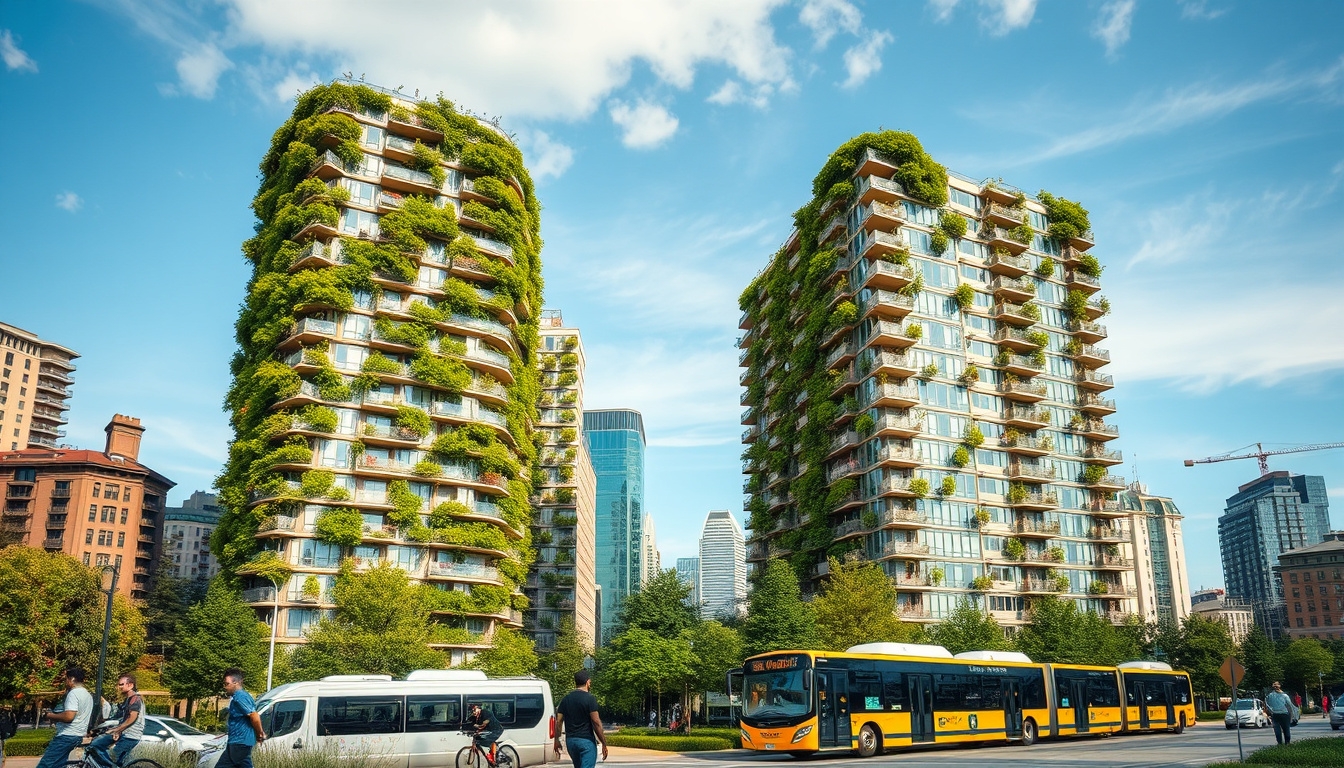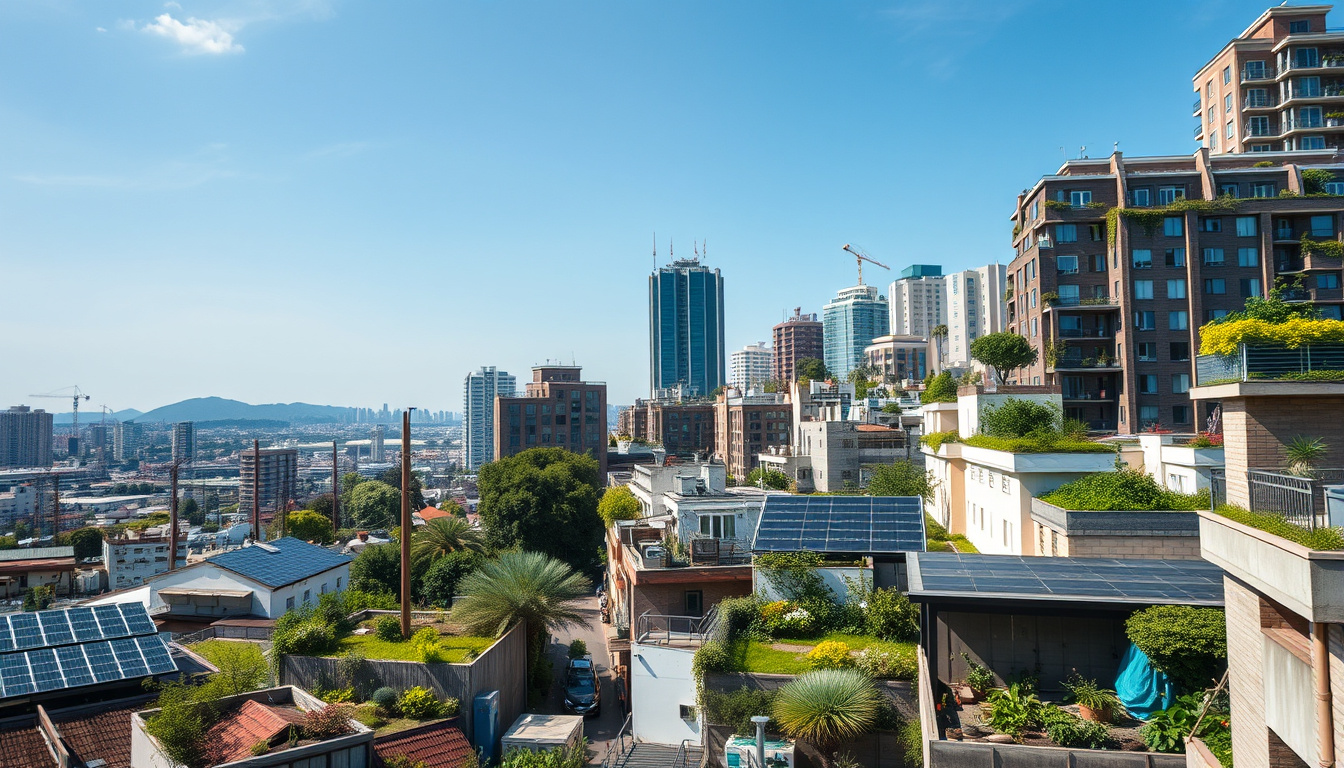In today’s fast-paced world, the concept of sustainable urbanism is more important than ever. We’re witnessing a shift where cities are not just concrete jungles but are evolving into vibrant, ecological systems. But how do we accomplish this? Understanding sustainable urbanism means delving into the principles and practices that guide us toward building greener cities. It involves creating urban spaces that prioritize eco-friendliness, community, and connectivity. However, the road to greener cities is not without its challenges. So, how can platforms like ivault play a role in this journey? By promoting local sharing, borrowing instead of buying, and minimizing waste, ivault supports sustainable living, helping us all contribute to the urban future we’re dreaming of, one sustainable choice at a time.

Key Takeaways
- Sustainable urbanism focuses on creating eco-friendly and resilient urban environments.
- Key principles include mixed-use development, green spaces, and sustainable transportation options.
- Implementing sustainable practices can enhance the quality of life for urban residents.
- Challenges such as funding and public policy must be addressed to advance sustainable urban development.
- Future directions include integrating technology and community engagement in urban planning efforts.
Understanding Sustainable Urbanism
Sustainable urbanism is an approach that prioritizes ecological health, social equity, and economic vitality in city planning and development. It seeks to create urban spaces that not only minimize environmental impact but also foster a greater sense of community. By integrating green living practices, efficient resource use, and innovative design, sustainable urbanism aims to reduce waste and make cities more livable for everyone. This is where ivault comes into play—by facilitating local sharing and borrowing through its app, community members can easily lend or rent items they need without the burden of ownership, thus promoting a more sustainable lifestyle and strengthening neighborhood bonds.
Key Principles and Practices of Greener Cities
Sustainable urbanism is all about crafting cities that are not only livable and vibrant but also environmentally friendly. One key principle is the emphasis on green spaces, which promote biodiversity, enhance air quality, and provide residents with natural areas for relaxation and recreation. Another important practice is compact, mixed-use development, which reduces reliance on cars, encourages walking, and fosters community interaction. Integrating local resources is vital for reducing waste and minimizing carbon footprints. This is where ivault comes into play—by facilitating borrowing, lending, and sharing within neighborhood networks, ivault empowers urban dwellers to access tools, equipment, and other resources without the need for ownership. Imagine needing a lawnmower or a power drill; instead of purchasing these items that would gather dust, you can borrow from your neighbors using ivault, promoting a sharing economy that benefits both the planet and your wallet. Ultimately, sustainable urbanism thrives on community collaboration and smart resource management, both of which ivault makes effortless.
‘Sustainability is no longer about doing less harm. It’s about doing more good.’ – Jochen Zeitz

Challenges and Future Directions in Sustainable Urban Development
Sustainable urbanism faces several challenges as cities continue to expand and adapt to changing environmental and social pressures. One of the primary hurdles is balancing economic growth with ecological preservation; many urban planners struggle to implement green spaces that both enhance locals’ quality of life and preserve biodiversity. Additionally, issues such as pollution, traffic congestion, and waste management require urgent attention and innovative solutions. Enter ivault, a platform designed to foster sustainable living through local sharing and resource optimization. By encouraging residents to borrow and lend everyday items, ivault reduces the need for new purchases, ultimately lowering waste and consumption levels. In the future, leveraging technologies like ivault could advance sustainable urbanism by connecting community members, promoting efficiency, and minimizing the carbon footprint associated with urban living.
Frequently Asked Questions
What is sustainable urbanism?
Sustainable urbanism is an approach to city design and planning that emphasizes environmental responsibility, social equity, and economic viability. It aims to create livable, resilient cities that minimize environmental impact while enhancing quality of life for all residents.
What are some key principles of sustainable urbanism?
Key principles include mixed-use development, walkability, integration of green spaces, efficient public transportation, and the use of sustainable building materials. These principles encourage community engagement and aim to reduce car dependency.
What challenges do cities face in implementing sustainable urbanism?
Challenges include political and economic obstacles, public resistance to change, funding constraints, and existing infrastructure that may not support sustainable practices. Additionally, integrating sustainability into urban policy requires collaboration among various stakeholders.
How can individuals contribute to sustainable urbanism in their communities?
Individuals can contribute by advocating for greener policies, participating in local planning initiatives, supporting sustainable businesses, and using public transportation or alternative modes of transport like biking or walking.
What is the future direction of sustainable urban development?
The future of sustainable urban development is likely to focus on smart technologies, increased emphasis on climate resilience, and a community-centered approach to planning. Innovations in renewable energy sources and sustainable materials will play a crucial role in shaping greener cities.
